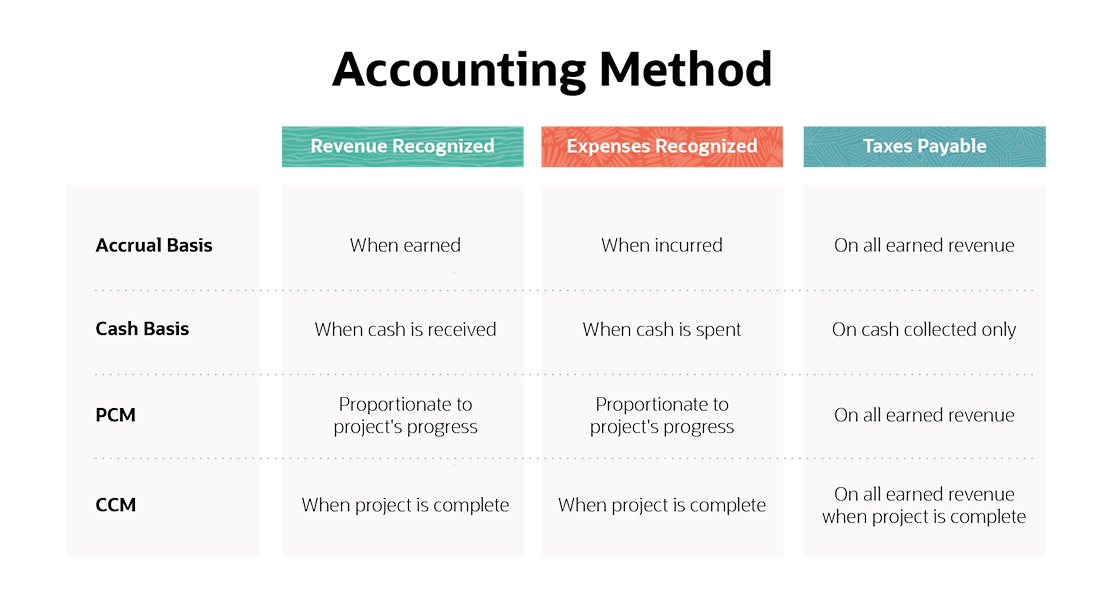Construction Accounting: Tools and Techniques to Optimize Your Financial Operations
Construction Accounting: Tools and Techniques to Optimize Your Financial Operations
Blog Article
Comprehending the Significance of Building Audit for Effective Project Management

Role of Building Accountancy
Construction audit works as the backbone of financial management in the building and construction market, making sure that tasks are finished within budget plan and monetary goals are fulfilled. construction accounting. This specialized accountancy method addresses the one-of-a-kind difficulties faced in building and construction jobs, including differing project periods, rising and fall expenses, and numerous stakeholders
One of the key functions of construction audit is to offer precise expense estimation and tracking throughout the job lifecycle. This assists in enlightened decision-making, allowing task managers to change timelines and sources successfully. In addition, construction bookkeeping improves capital monitoring by checking accounts payable and receivable, thus making sure that funds are offered for timely repayments to subcontractors and distributors.
It gears up task supervisors with the needed economic data to prepare detailed economic declarations, which are essential for audits and monetary reviews. Inevitably, the function of building audit extends beyond plain monetary tracking; it is important to strategic planning and functional efficiency, driving the success of building and construction jobs in a competitive landscape.
Secret Components of Construction Accounting

Budgeting establishes a monetary framework that guides task implementation, enabling managers to allot resources effectively and prepare for prospective economic obstacles. Precise cost monitoring is important for tracking expenditures in real-time, assisting to identify variations between projected and real prices. This makes it possible for timely adjustments to maintain the project on spending plan.
Additionally, financial coverage offers stakeholders with a clear image of the job's economic health and wellness. Normal reports, such as earnings and loss statements and capital evaluations, help with educated decision-making and improve transparency amongst all events included.
In addition, compliance with sector policies and accountancy standards is critical. This guarantees that economic practices are not just reliable but likewise authorized, protecting the company against lawful repercussions. By incorporating these vital components, building and construction accounting promotes an organized approach to handling monetary sources, ultimately contributing to the successful conclusion of building and construction projects.
Benefits for Job Supervisors
Leveraging effective building bookkeeping practices offers job managers with a multitude of benefits that enhance both functional performance and economic oversight. One considerable advantage is improved budget management. Exact monitoring of costs and profits permits task managers to keep track of monetary performance in real time, ensuring tasks continue to be within spending plan and assisting in timely modifications when necessary.
Furthermore, building and construction audit enhances capital monitoring, allowing project supervisors to expect financial demands and enhance resource appropriation. By official statement comprehending cash inflows and discharges, they can better take care of repayments to subcontractors, suppliers, and staff members, consequently staying clear of expensive hold-ups.
Additionally, durable bookkeeping systems provide extensive coverage capabilities. Job supervisors can produce records that supply understandings into task productivity, expense differences, and resource use. This data-driven approach promotes educated decision-making, permitting managers to determine possible concerns proactively and execute restorative measures.
Lastly, adherence to building audit standards guarantees conformity with regulatory and lawful requirements, decreasing the risk of penalties or conflicts. Overall, effective building audit gears up job managers with the tools required to drive job success, improve stakeholder self-confidence, and advertise long-lasting business growth.
Typical Difficulties in Building Accountancy
Lots of job supervisors come across considerable difficulties in building bookkeeping that can hinder project success. One of the primary obstacles is the intricacy of tracking numerous task sites, each with distinct budgets, timelines, and resource appropriations. This calls for precise attention to detail, which can be frustrating without a durable accountancy system in position.
Additionally, varying material costs and labor prices can complicate budget monitoring, making exact projecting challenging. Project supervisors commonly have a hard time to reconcile these prices with actual expenditures, bring about possible monetary disparities.
Moreover, building and construction accounting involves compliance with numerous guidelines, including tax obligation responsibilities and labor laws. Browsing these guidelines can be complicated, especially for supervisors who might not have a strong audit background.
Another considerable challenge is handling capital, which is crucial in the building and construction market. Hold-ups in invoicing, payments from customers, or unexpected job adjustments can create cash money circulation shortages, threatening the project's development.
Lastly, efficient interaction between job supervisors, accounting professionals, and field teams is essential. Misunderstandings can result in imprecise financial coverage, better complicating job monitoring initiatives. Addressing these difficulties proactively is crucial for successful building accountancy.

Ideal Practices for Effective Accounting
While navigating the intricacies of building bookkeeping can be complicated, embracing finest methods can substantially boost monetary administration and project success. One fundamental practice is keeping timely and exact documents. Carrying out durable bookkeeping software customized to building and construction jobs can improve data access, invoicing, and coverage, decreasing errors and conserving time.
Furthermore, establishing a clear spending plan and routine tracking versus this budget plan are important. Employing a system of routine monetary reviews permits job supervisors to determine variances early, promoting timely decision-making. It is also important to different project prices into indirect and straight categories, making it possible for clearer understandings into productivity.
One more ideal method entails promoting open interaction among all stakeholders. Routine updates and collaborative conversations about monetary standing can guarantee every person is aligned and notified. Training personnel in construction-specific audit principles additionally enhances proficiency and precision.
Finally, making certain conformity with pertinent bookkeeping standards and guidelines is non-negotiable. Regular audits and internal evaluations add to transparency and accountability, developing trust fund with stakeholders and clients. By concentrating on these ideal techniques, building firms can enhance their audit processes, ultimately driving job success and monetary security.
Verdict
In conclusion, construction bookkeeping plays a crucial duty in ensuring this article successful task monitoring next by facilitating exact financial oversight and enhancing decision-making. By integrating essential elements such as expense evaluation, capital monitoring, and conformity, job supervisors can browse typical obstacles and utilize ideal techniques for reliable accounting. Ultimately, a durable construction accountancy structure not only safeguards budget plan integrity but also adds to the total economic health and wellness of building jobs, fostering sustainable success within the sector.
By incorporating these essential components, construction accounting cultivates an organized method to managing economic resources, ultimately adding to the effective completion of building jobs.
Accurate monitoring of revenues and expenses permits job managers to monitor economic performance in actual time, making sure projects continue to be within budget plan and facilitating prompt modifications when necessary.
Job managers can produce reports that use insights right into project productivity, expense differences, and resource application.Numerous task managers run into considerable obstacles in building audit that can hinder task success. construction accounting. Ultimately, a durable construction accountancy structure not only safeguards spending plan integrity however additionally contributes to the general economic health and wellness of building and construction projects, promoting lasting success within the industry
Report this page